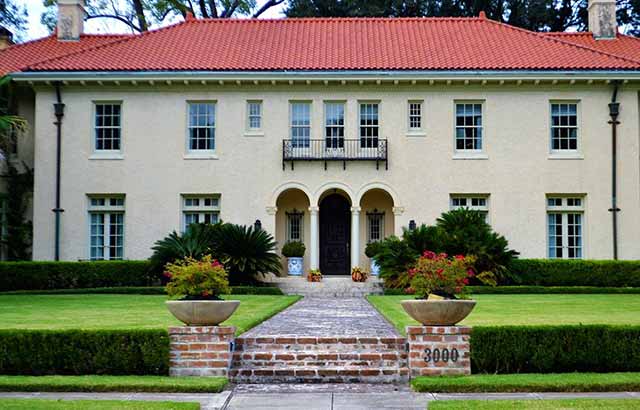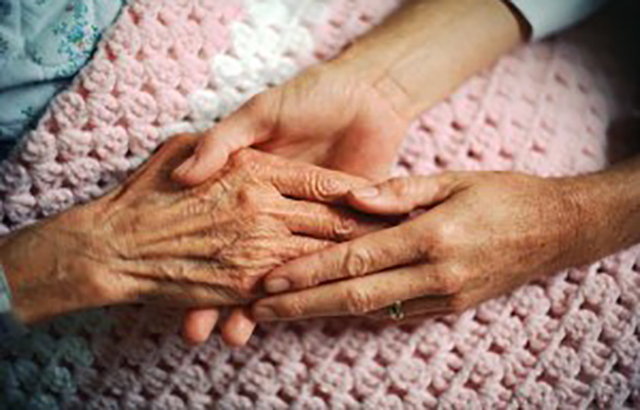What Is Hospice?
Medically-based end-of-life care addresses physical, emotional and spiritual quality of life for individuals and families.
One out of three people in the United States choose hospice care when they are dying, according to the Hospice Foundation of America. Hospice care has been offered in the United States since the early 1970s, yet many still don’t know the service is available.
Hospice is a specialized form of medical care designed to achieve physical comfort and emotional support to an individual with a life-limiting illness, and to provide family support. Men, women and children may be referred to hospice when it’s determined by a physician the individual’s prognosis for life is six months or less if a disease process continues its course.
“Hospice helps us to acknowledge that death is a part of life,” says Dr. Anh Nguyen, associate medical director of Nashville’s Odyssey Hospice. “We want to be able to live as long a life as we can, but not at the cost of one’s dignity.”
Improving Quality of Life
Hospice care neither prolongs life nor hastens death. Instead, hospice aims to relieve the physical, emotional and spiritual pain of an individual. It’s practiced to improve the quality of life, comfort and dignity of individuals whose bodies are no longer responding to aggressive, curative treatments.
“Hospice is not letting someone down or giving up on a person,” assures Dr. Nguyen. “Actually, you are giving them extra care. Hospice helps people to prepare to live as well as they can. It’s more direct, individualized care toward a better quality of life.” Hospice services can help individuals struggling with end-stage Alzheimer’s disease, cancer, COPD, neurological diseases, heart disease, stroke, and lung disease, among other illnesses.
Care is provided by specially trained professionals working as a multidisciplinary team consisting of registered nurses, home health aides, social workers, chaplains, physicians and nurse practitioners. Regular visits to the patient are made by the team to evaluate individualized care goals and particular needs.
Amy Goodman-Long is a social worker at the Lenexa, Kansas Odyssey office. “There are many resources out there to help patients and families. I strive to look at the total picture along with the individual, and do what we can to bring them peace and contentment.”
Another component of hospice care is bereavement and grief support. Susan Meyers, LPC, the Lenexa Kansas Bereavement Coordinator, explains: “Individuals and families who have cared for a loved one may experience grief in different ways. No two grief styles are the same. Compassion, respect and empathy are tools often used to follow those through the grief journey. The bereavement care provided by hospice allows family members to be unique and accepted for “where they are” spiritually, mentally, emotionally and physically.”
Medical Care Offered at Home
A common misperception about hospice is that it’s a place. It’s not. Rather, it’s medical care provided in the environment an individual calls home—familiar surroundings like a private family home or in the assisted living or long-term care community in which they have been living. On-call support is provided 24 hours a day, seven days a week.
“No one wants to die, but to ‘do everything that can be done’ doesn’t always mean doing something medically toward a cure,” Dr. Nguyen says. “It’s also healing, in a different sense, to have more time to sit with grand children or to smell home cooking again.”
Typically, an individual and their family can choose a local hospice provider they wish. If they’re not familiar with providers, physicians may make recommendations or families may interview area providers to learn more about their services.
“My job is to educate families that when their loved one is diagnosed with a life limiting illness, there is an army of people and services waiting to help” says Liz Jones, Account Executive with Odyssey Hospice. “Once families realize that they are not alone and will have a team of caregivers who will guide them through the process, they are relieved and grateful.”
Generally, hospice care is covered by Medicare or Medicaid. Many private health insurance plans offer a benefit, too. Fees related to the hospice care are covered by this benefit.
Honoring Patients and Families
When someone in the family faces a life-limiting illness, hospice services remind us we need not walk that path alone. In fact, many families say they wish they had initiated hospice sooner.
“Many people tell me,” Mahoney says, ‘You allowed me to be a daughter as opposed to a clinical caregiver. You took a lot of stress off us,’ or they may say, ‘We couldn’t have cared for mom without you. You helped us to anticipate what to expect.’ It’s rewarding to be able to connect with people and to be able to help them to provide some measure of comfort.”
“We can help people with the caregiving so that they can be the wife, the son, the friend, rather than primarily a caregiver,” says Dr. Nguyen, “and, in turn, that helps people to have the permission to let their loved one go, honoring them for who they are to their family.”










